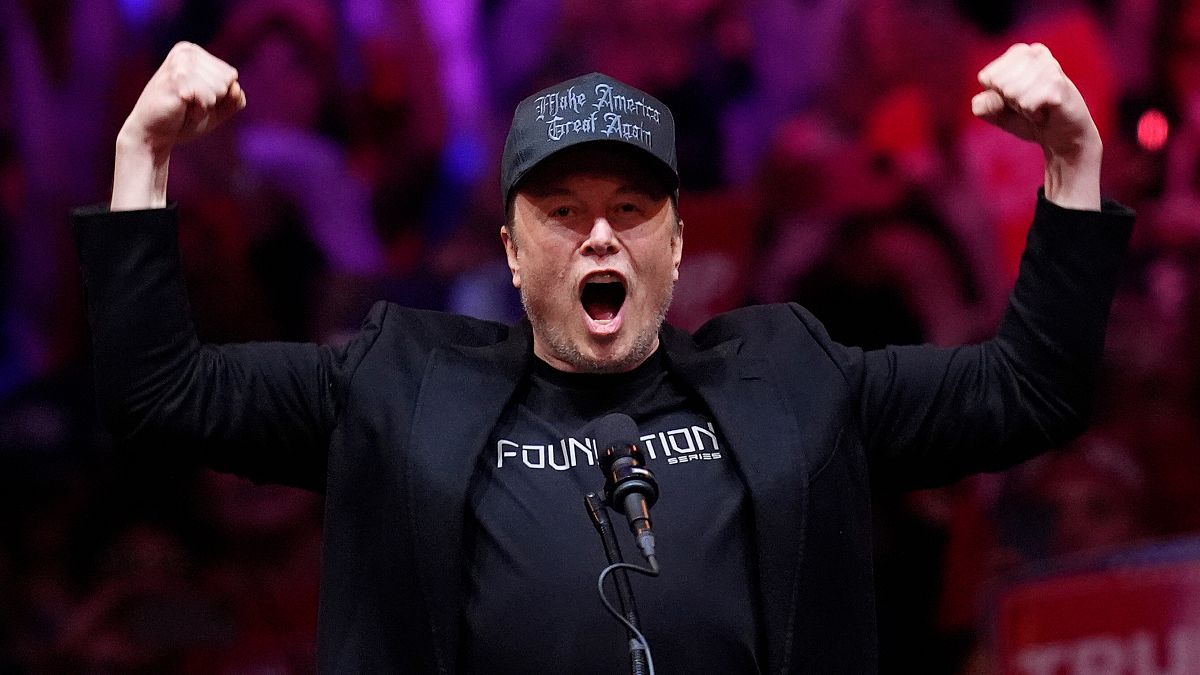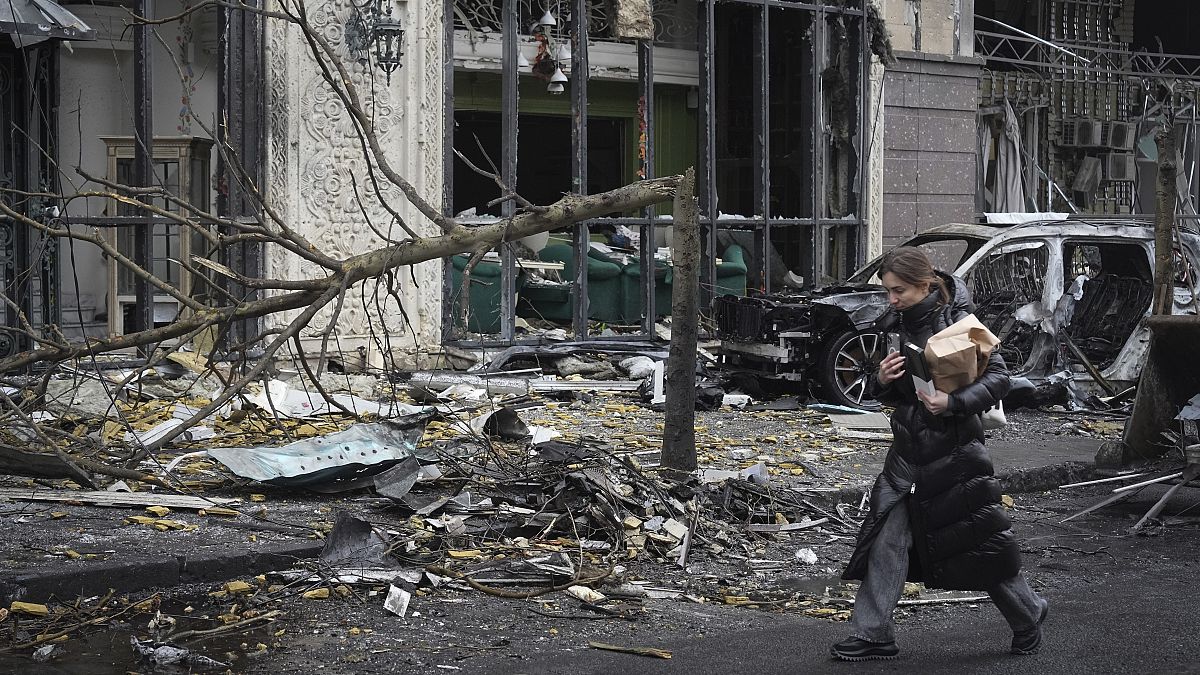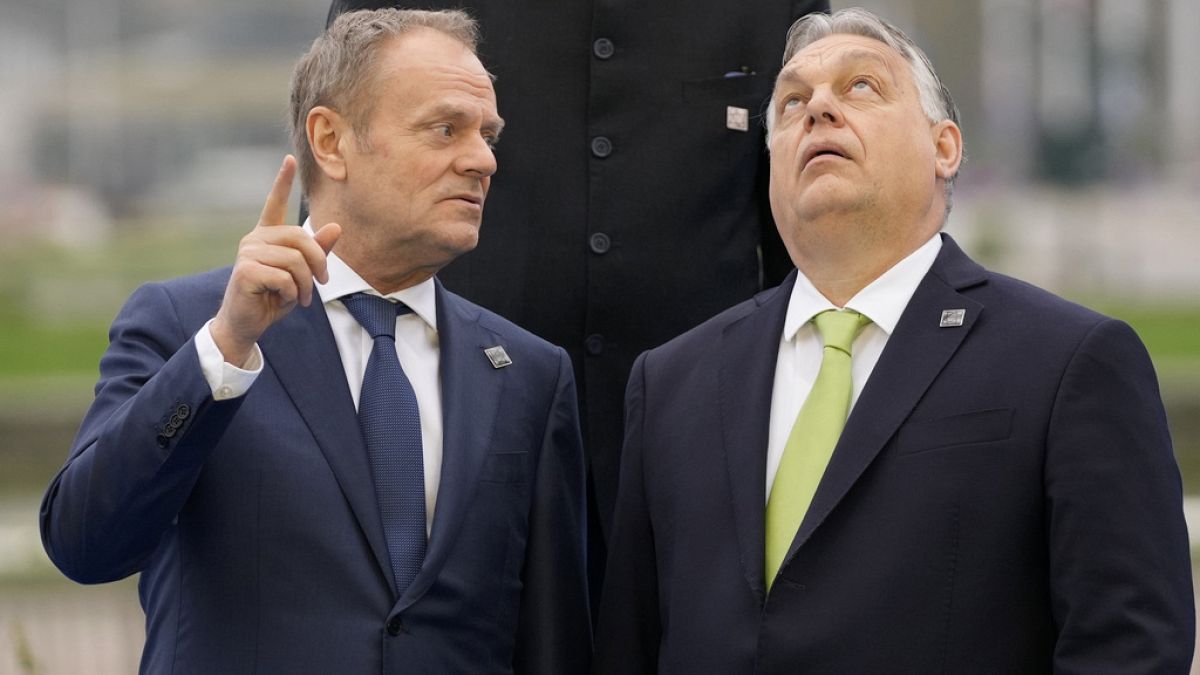Despite an agenda packed with hot-button topics, the summit of EU leaders is not expected to yield any breakthrough.
The 27 leaders of the European Union are on Thursday meeting in Brussels for a one-day summit with a remarkably busy agenda that will touch upon Russia's invasion of Ukraine, Syria's transition of power, continued protests in Georgia, new ways to reinvent migration policy and the survival guide for the upcoming Donald Trump administration.
It marks the first summit chaired by António Costa since he assumed the presidency of the European Council on 1 December as part of the bloc's new legislative cycle. French President Emmanuel Macron will not attend due to the catastrophic situation in Mayotte after Cyclone Chido and will be represented by German Chancellor Olaf Scholz.
Despite the packed list of topics, the high-level gathering is not expected to deliver a breakthrough on any of them. Instead, talks will aim at consolidating the work done at a lower level and focusing minds in a period of extreme uncertainty for Europe.
The long day will begin with Ukraine, the top priority for leaders, and an in-person intervention from President Volodymyr Zelenskyy, who will make the case for more military support and stronger sanctions against Russia.
Zelenskyy estimates his country needs over a dozen air defence systems, which are crucial for protecting Ukrainian cities and power plants against Russia's relentless bombarding. The Ukrainian leader broached the topic on Wednesday evening during a meeting hosted by NATO Secretary General Mark Rutte and attended by a select group of EU leaders, including Italy's Giorgia Meloni and Poland's Andrzej Duda.
"It’s a very good opportunity to speak about security guarantees for Ukraine for today and for tomorrow," Zelenskyy said, standing next to Rutte.
"It's very important to use these two days in Brussels to meet with all our partners and have the same – what is very important – not divided (but) the same joint position of Europe on how to secure Ukraine, how to strengthen us, our people."
The summit comes at a perilous time for Kyiv, with Russian forces gaining ground in the East and North Korean soldiers fighting in the Kursk region, some of whom have already been killed, according to US and Ukrainian officials. North Korea's participation, estimated to be around 11,000 men, has expanded the war's scale and thrown Russia an essential lifeline to make up for its heavy losses on the ground.
Zelenskyy has warned North Korea's deployment could grow to 100,000 soldiers.
After the Ukrainian president leaves the room, heads of state and government will turn to an abstract-sounding discussion titled "The EU in the world" that will essentially deal with Donald Trump's return to the White House, scheduled for 20 January.
Trump's comeback has compounded the EU's profound sense of anxiety, with growing fears the Republicans will soon push for a rushed arrangement to end the war that would entail painful territorial concessions for Kyiv and greater military responsibility for Europeans – possibly in the form of a peacekeeping mission.
Trump's repeated threat of slapping foreign goods with across-the-board tariffs is also adding to the unease. Restrictions on America's wealthy market could send the bloc further down the spiral of economic stagnation and industrial decline.
The talks, though, will not produce a detailed manual on how to deal with the notoriously mercurial billionaire: leaders do not want to anticipate Trump's actions before they materalise, as doing so pre-emptively might result in misguided policy choices.
In their joint conclusions, a draft of which was seen by Euronews, the 27 will stress the principle that "no initiative regarding Ukraine (shall) be taken without Ukraine" and call for "the urgent stepping up" of military support, such as air defence systems, ammunition and missiles. The ultimate goal, diplomats explain, is to put Kyiv in the strongest possible position to prepare for future negotiations with Russia.
"Europeans are strongly united in saying that European support for Ukraine must be continued and even strengthened and that we must not relax our efforts," said a senior diplomat, speaking on condition of anonymity.
That unity, however, is increasingly strained. Hungary's Viktor Orbán has been rebuked by Zelenskyy for proposing a so-called "Christmas ceasefire" while Slovakia's Robert Fico has suggested the EU "move from being an arms supplier to a peacemaker."
Syria's uncertain future
Besides Ukraine and Trump, the other main topic on the summit's agenda will be Syria and its transition of power after 24 years under Bashar al-Assad's brutal rule.
Earlier this week, the EU made its first contact with Hayat Tahrir al-Sham (HTS), the rebel force that led the offensive that toppled Assad and is steering the war-torn country into a new political era. The engagement was done at the ambassadorial level and leaders are, for the time being, set to keep it as such because HTS remains blacklisted as a terrorist organisation by the United Nations and, by extension, by all EU countries due to its previous links with al-Qaeda and multiple allegations of human rights abuses.
Since the change of regime, HTS and its leader, Ahmed al-Sharaa, have adopted a more institutional, moderate persona, promising to disband all rebel factions and urging Russia to "reconsider" its controversial military presence in the country.
"Syria must remain united," al-Sharaa said this week. "There must be a social contract between the state and all religions to guarantee social justice."
The group has called on Western countries to lift the terrorist designation and the manifold sanctions that were imposed against Assad's autocracy.
"We're not naive about where these people come from and what their past was but they have said a couple of things that we can hold them to account," said a senior diplomat from another country. "Let's see how the dust gets settled after the events."
Ursula von der Leyen, who traveled to Turkey this week to discuss Syria's transition with a key regional player, President Recep Tayyip Erdoğan, has said sanctions relief would happen gradually according to the actions that HTS takes on the ground.
"We need to see real progress towards an inclusive political process," she said.
The European Commission president has underlined that returns of Syrian refugees hosted in Europe should happen on a strictly voluntary basis, as the situation inside the country, which is ravaged after a bloody civil war, remains too volatile and risky. Meanwhile, Austria has offered €1,000 for each Syrian refugee who wishes to go back.
Migration will also be part of Thursday's agenda, although no decisions are expected. The last summit in October delivered a major turning point when leaders endorsed the outsourcing of migration procedures in the form of "return hubs," camps located in faraway countries where rejected asylum seekers would be transferred.
The plan, ridden with legal and financial controversies, is still in the early stages.
Additionally, heads of state and government will hold a brief discussion about Georgia, which has been rocked by consecutive nights of protests since Prime Minister Irakli Kobakhidze unilaterally announced the suspension of membership talks until 2028.
The violent crackdown on pro-EU demonstrators has led to chaotic clashes on the streets, arrests of opposition figures, multiple reports of injured people and hundreds of arrests, prompting an outpour of condemnation across the bloc.
A first attempt to impose EU sanctions on Georgian officials responsible for the repression was blocked by Hungary and Slovakia earlier this week. As Plan B, the Commission is preparing a proposal to suspend visa-free travel for Georgian diplomats, a measure that is less severe than sanctions but that only requires a qualified majority.
Alice Tidey and Maria Psara contributed reporting.

 1 week ago
5
1 week ago
5






 We deliver critical software at unparalleled value and speed to help your business thrive
We deliver critical software at unparalleled value and speed to help your business thrive






 English (US) ·
English (US) ·